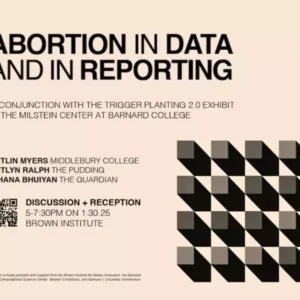
HUD Colloquium Fall 2024 Presents: Dr. Nicole McNeil
The Human Development Colloquium Series Presents:
Small Variations, Significant Impact: How The Structure Of Input Influences Children’s Understanding Of Mathematics
Dr. Nicole McNeil
ACE College Chair Professor
University of Notre Dame
Bio: Dr. McNeil is Professor of Psychology and ACE College Professor at the University of Notre Dame, where she directs the Cognition Learning and Development (CLAD) Lab and is a fellow of the Institute for Educational Initiatives. She serves as an Associate Editor for the journal Cognitive Science and is a Fellow of the Association for Psychological Science. McNeil’s research focuses on math cognition, symbolic development, skilled reading, and problem solving. Her work has been continuously funded by federal and foundation grants since her early days as an assistant professor, and she’s received national recognition, including the Presidential Early Career Award for Scientists and Engineers (PECASE) and the Boyd McCandless Award. She is an advocate for open science and high-impact tutoring and enjoys connecting educators and cognitive scientists.
Abstract: High impact tutoring is one of the most promising strategies for reducing opportunity gaps in education (Slavin & Steiner, 2020). It produces more impacts per dollar than approaches such as direct cash transfers and class-size reduction (Cook et al., 2015). Although tutoring has the potential to be highly effective, its adoption by policymakers remains limited, due in part to the prevalence of poor-quality tutoring programs. To address this issue in our community, we are implementing a design-based approach to evidence-based tutoring through a collaborative effort among a cognitive development research lab, a tutoring provider, a teacher formation program, and several schools and afterschool programs. Our approach integrates two sometimes competing approaches – those designed to generate robust causal evidence and those that focus on service to practitioners implementing programs and practices in context. The work is accomplished through a design team that includes tutors, instructional coaches, cognitive scientists, psychologists, teacher educators, and school administrators. Pilot results are promising based on a range of evaluation methods. In this talk, I’ll describe the genesis of our initiative and showcase how a design-based approach to evidence-based tutoring can accelerate student learning, strengthen educator pipelines, and provide a beneficial infrastructure for cognitive science.
To request disability-related accommodations, contact OASID at oasid@tc.edu, (212) 678-3689, as early as possible.


